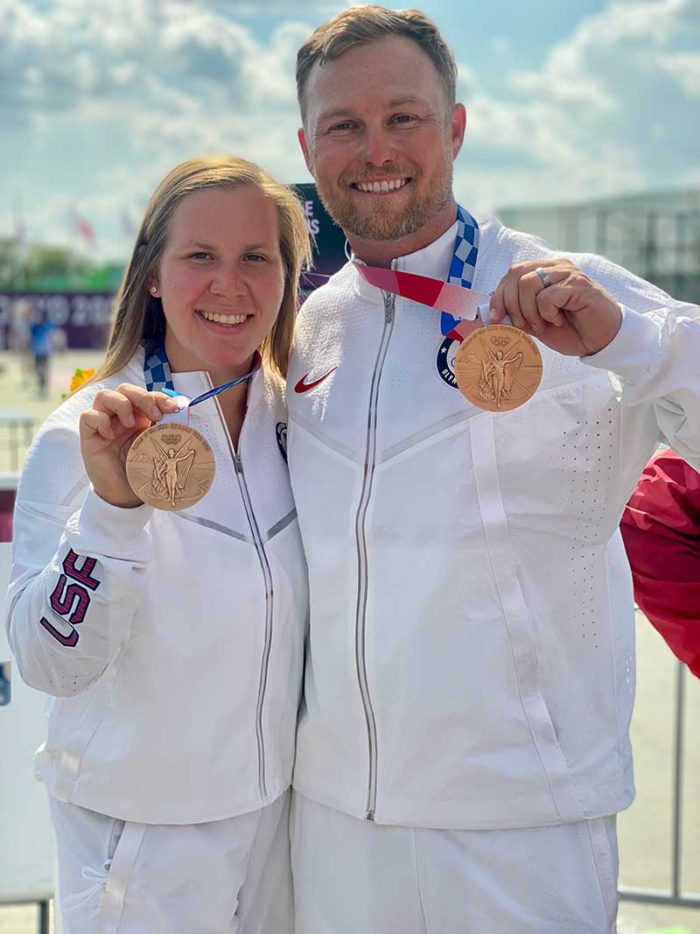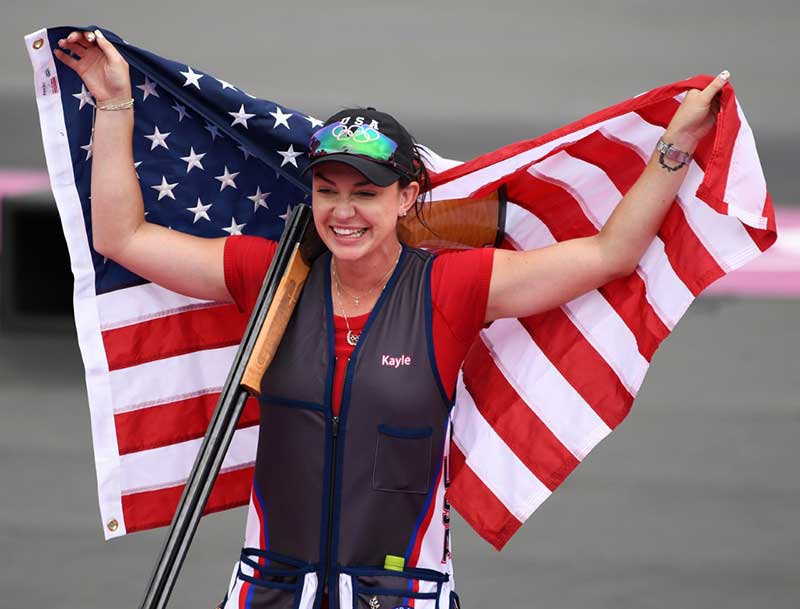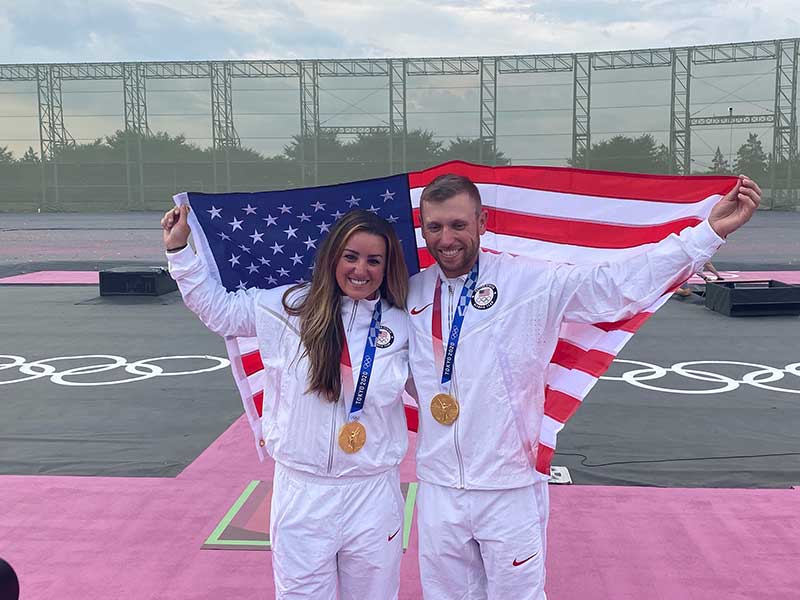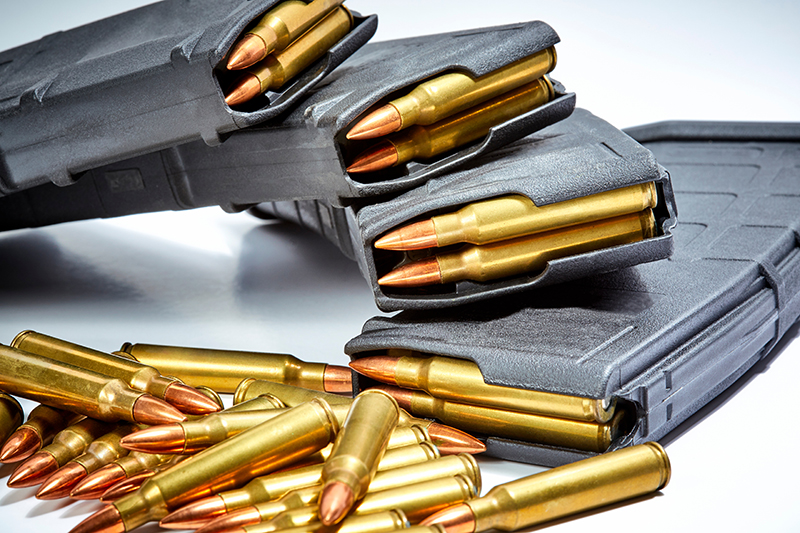A Team To Be Respected
339 events, 41 different sports and 11,000+ athletes competing. It was the Tokyo Olympic Games. One of the most celebrated sports events in the world. With over 7,000 hours of television coverage, it was also the biggest Olympics to date. And even though IOC President Thomas Bach proclaimed the Olympic Games “are not, and must never be, a platform to advance political or any other potentially divisive ends,” it was also the first Olympics with more political correctness and social pressure acquiescence than any other.
Mr. Bach is in denial. Since the first modern day Olympics in 1896, politics have always played a part in international competition. Whether it’s political feuding, athlete activism rearing its head or a social cause awareness campaign, the Olympics are political. There’s no denying it. But this time, it just might have caught up with them.
“Wokeness” Behind Drastic Drop?
According to SportsMediaWatch.com, the prime time average from the Tokyo Games showed a 42% decline in viewership from the Rio Games five years prior and a 50% drop from the London Games. These Olympics averaged only 15.6 million viewers per night across all of NBC’s television networks and digital platforms. The Closing Ceremonies averaged just 9 million viewers, declining 47% from Rio, making it the smallest prime time Olympics viewing audience on record.
What led to these drastic drops? Is it because of the political statements made by athletes who chose to use the Olympics as a personal platform for their own agendas? Or was it the “wokeness” injected into every aspect of the Games, such as using correct pronouns so as to not offend anybody? Or was it just due to the volatile political climate we now live in?
Networks and advertisers are all trying to answer those questions as they suffer financial losses and deal with a lot of PR damage control.
But who suffered the most? Without a doubt, it was the athletes themselves who had to deal with the fall out. (Not the ones who use the Olympics as a venue for their opinions. No, they just showed up and created controversy.) I’m referring to the ones who went to compete and accomplish a lifelong goal. The ones who let the dream of an Olympic medal become the all-consuming drive in their life. The ones who left politics at the door and focused on representing their sport and their country. Those athletes — the ones who carried their flag and pride of country proudly on their shoulders.
Politics & Sport: A Shared History
Politics and sport have always been together, even as far back as 1832. Horse racing was America’s most popular spectator sport back then, and American politics was not near the depths of duplicity and polarization it is now. The most divisive political battle of 1832 was a constitutional crisis over “nullification.” The state of South Carolina was debating whether it could refuse to abide by a federal import tax backed by then- President Andrew Jackson. Strictly politics.
But at the racetrack in Richmond, Va., that year, two horses entered the field — Andrew Jackson and Nullifier. The outcome of the political battle is a moot point now, but on the racetrack, Nullifier lost to Andrew Jackson. So, as much as we all feel politics and sports should be separated and activist athletes should just compete and keep their opinions to themselves, it’s been going on for hundreds of years — even as far back as the ancient Greek Olympics.
I’m not advocating athletes shouldn’t have a voice. Everyone should. But there’s a time and place. Sports and politics will always be melded together. Thankfully, our USA Shooting Team and their athletes know when it’s the right time and place to take a stand.
However, the debate today over sports and politics seems to ignore these early examples and perhaps the difference now is the internet, the addition of numerous television networks and dozens of social media platforms. Exposure is much more widespread, so some athletes feel the Olympics is the perfect platform to express their views, thinking their message will be broadcast to the world and it will bring about some sort of social change.
In using the Olympics as a platform to voice their opinions though, these athletes disrespected the Games, their sport and their country. Most important, they disrespected their teammates. The people they trained with, struggled with and in some cases cried with. The female hammer thrower, the soccer player and a few others, when their teammates were on the podium — hand over heart, tears streaming, relishing the moment after years of hard work — those few athletes chose to disrespect their teammates and accomplishment. Their moment of triumph ruined.
Let’s call it what it is: It’s nothing but sheer selfishness and unbridled self-regard. And that is what has to stop. Those athletes need to remember it’s not only about them. It’s about their team and their sport. Forget personal opinion and whatever cause is on their plate that day. Show some respect for your team and the Olympics Games themselves.
Not One Knee Bent …
This is why I took great pride in my sport and my team — the shooting sports and the USA Shooting Team. As the shooting sports analyst for NBC during the Olympics, I’m able to see what goes on behind the scenes. I’m proud to share through 13 shooting events, not one knee was bent, not one flag was dropped and not one rude, impolite, ungracious moment took place. There were tears, cheers and smiles — whether an American won or lost the event. The USA Shooting Team members took pride in themselves, their country and their flag and it showed with a stellar performance, bringing home six Olympic medals.
There’s plenty of political and social unrest in America right now. So much so, it’s polarizing our nation, but our shooting sports athletes left it all at the door and did their job. They went to Tokyo with one goal: to win and proudly represent their country. Maybe it’s the way we conduct our sport and the shooting industry. Maybe it’s how we’re raised, with respect for guns, for competition, for our country and for each other and how the USA Shooting Team is run.
Sports and politics will always be melded together. Thankfully, our USA Shooting Team and their athletes know when it’s the right time and place to take a stand.
I’m not advocating athletes shouldn’t have a voice. Everyone should. But there’s a time and place. Sports and politics will always be melded together. Thankfully, our USA Shooting Team and their athletes know when it’s the right time and place to take a stand.
Congratulations to the USA Shooting Team for an outstanding performance. Both on and off the field. They made us proud to be a part of the shooting industry, to be Americans, to support our country and our flag. They also made us proud to support them as athletes and individuals. Let’s keep up the support. Paris 2024 is only three years away!
Shari LeGate, a former USA Shooting Team member, has been the shooting sports analyst for NBC since the Beijing 2008 Olympics. LeGate also serves as FMG Publication’s video producer and shooting sports analyst.







